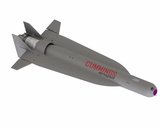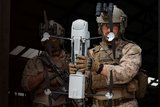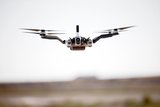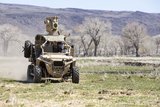L3 technologies for Boeing XLUUV bid
L3 Technologies has joined Boeing’s team to design next-generation technologies for the US Navy’s Extra Large Unmanned Undersea Vehicle (XLUUV) programme, the company announced on 2 November.
Under the programme, L3 will integrate communications, mission planning, autonomy, navigation, cybersecurity and anti-tamper capabilities throughout the vehicle and system as part of the Boeing team. The system will include a fixed ashore command centre, a mobile command centre and forward operating base support systems.
Jeff Miller, SVP and president of L3’s Sensor Systems segment, said: ‘We are developing discriminating unmanned undersea technologies, including vehicles, communications, power capabilities and sensors, to stay on the leading edge as the undersea threat evolves over the next decade.’
Boeing and Lockheed Martin have each been awarded Phase 1 contracts for the navy's XLUUV programme, which aims to meet increasing demand for undersea operational awareness and payload delivery.
More from Uncrewed Vehicles
-
![Cummings Aerospace showcases Hellhound loitering munition designed for US Army’s LASSO programme (video)]()
Cummings Aerospace showcases Hellhound loitering munition designed for US Army’s LASSO programme (video)
Cummings Aerospace presented its turbojet-powered Hellhound loitering munition at SOF Week 2025, offering a man-portable solution aligned with the US Army’s LASSO requirements.
-
![SOF Week 2025: PDW unveils attritable FPV drone for SOF operations at scale]()
SOF Week 2025: PDW unveils attritable FPV drone for SOF operations at scale
PDW has revealed its Attritable Multirotor First Person View drone at SOF Week 2025, offering special operations forces a low-cost, rapidly deployable platform for strike and ISR missions, inspired by battlefield lessons from Ukraine.
-
![SOF Week 2025: Teledyne FLIR white paper provides guidance on reusable loitering munitions]()
SOF Week 2025: Teledyne FLIR white paper provides guidance on reusable loitering munitions
Teledyne FLIR is highlighting the emerging requirements for 'recoverable and re-usable' loitering munitions across the contemporary operating environment during this week’s SOF Week conference in Tampa, Florida.
-
![SOF Week 2025: Kraken Technology group debuts K3 Scout USV in North America]()
SOF Week 2025: Kraken Technology group debuts K3 Scout USV in North America
High-performance maritime industry player Kraken Technology Group, based in the UK, has used the SOF Week conference in Tampa, Florida this week to debut its K3 Scout uncrewed surface vessel (USV) to the North American market.
-
![Palladyne AI and Red Cat to demonstrate capabilities for autonomous drone swarms to the US military]()
Palladyne AI and Red Cat to demonstrate capabilities for autonomous drone swarms to the US military
Red Cat and Palladyne AI recently conducted a cross-platform collaborative flight involving three diverse heterogeneous drones.
-
Jammer resistant drone designs spark search for countermeasures
The Russia-Ukraine conflict has driven another stage of evolution for drones and the counter measures to defend against them.

























